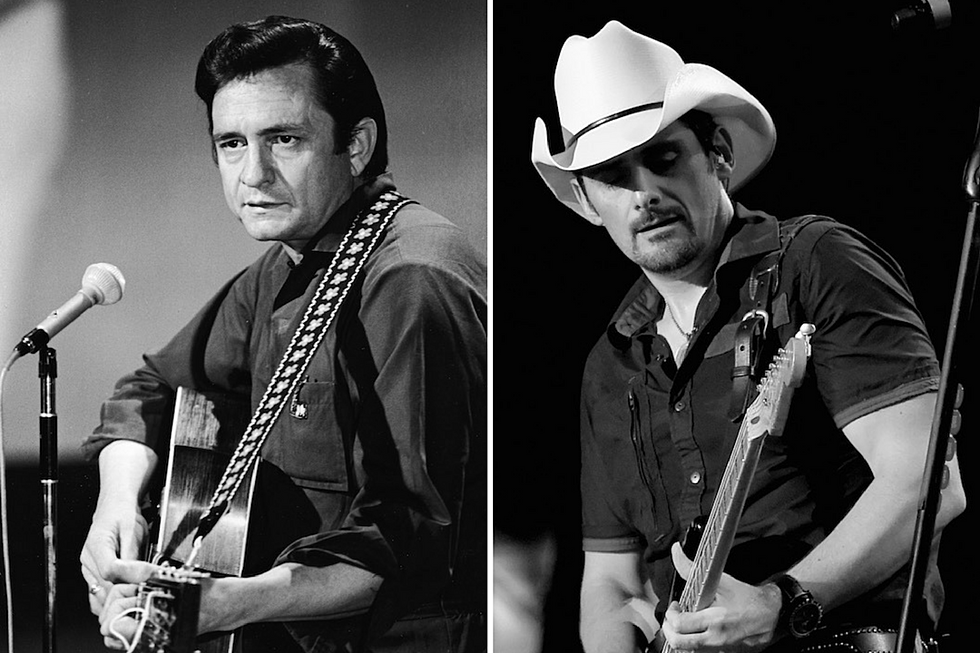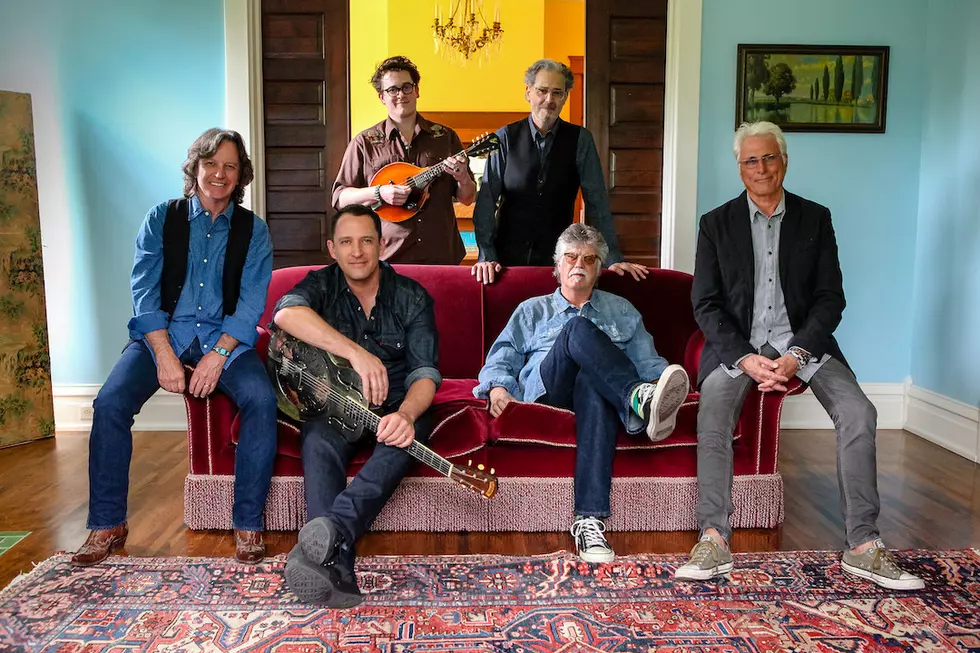
Nitty Gritty Dirt Band Bring Historic Reunion to Norway
The following story was related to Boot writer Vernell Hackett by Nitty Gritty Dirt Band member John McEuen, who was anxiously awaiting the band's concert at Norway's Seljord Country Music Festival last Friday, when he and friend and Latvian musician Pete Anderson reunited for the first time in 33 years. It speaks to the truth that music is universal; it also speaks to the truth that friendship can span time, miles and space and remain true through untold hardships. It is also testimony that a great musician and his music will be accepted when that music is able to be performed for audiences.
In 1977, the Nitty Gritty Dirt Band became the first American group to perform in the Soviet Union, an historic event of 28 sold-out concerts that was covered by various media including 'U.S. News and World Report,' CBS Nighttime News and 'Rolling Stone.' A one-hour performance on a Moscow Television show was said to have been watched by 140 million viewers.
Jim Brown, director of a documentary to be released in 2011, 'Rockin' the Iron Curtain,' which explores how American music "brought down the Iron Curtain, the Berlin Wall and the collapse of the Soviet Union itself'," contends that with their Soviet tour, the Nitty Gritty Dirt Band opened the door that allowed this to come about.
During the tour in Riga, Latvia, the NGDB crossed paths with Pete Anderson, already an underground music legend in his country. A friendship started between Pete and John that resulted in Pete performing with the Dirt Band on July 30 at Norway's Seljord Country Music Festival, something that he could never dream would happen when he first met the band in the Soviet Union more than 30 years ago.
Pete watched the NGDB rehearse, then told John, "It is like a dream, something I never thought possible. Playing my favorite music with a real American band."
Pete joined the Dirt Band onstage for their encore, 'Will the Circle be Unbroken?' His contribution turned the encore into a response that led to the band being called out for a second encore. "The audience would not quit so we didn't quit either, and lit into 'Jambalaya'," John told The Boot.
"Pete switched off verses with Jeff Hanna, sang on the choruses, and played rhythm guitar like he had been doing it with us for years," John continued. "The audience went crazy ... and after a show that had people singing back our own words and giving us our best acceptance ever in Norway, the crowd just got louder. After almost two hours onstage, we took our bows around 1:00 AM and headed back to Bowlegs. What a great day!"
The importance of this circular path is best understood when one knows some of Pete's journey, and the effects of American music on the lives of those in the Soviet Union:
When Pete started his music career performing Little Richard songs on stage in 1959, it was an illegal activity. Although he was continually harassed, stopped, had electricity turned during shows, warned of arrest, and physically threatened continually by the KGB ... he continued performing American rockabilly music and his own growing list of original songs.
But he became too popular.
By 1972, after years of defying the authorities by performing and building up a large Baltic fan base, the KGB threatened to kill his newborn daughter if he didn't stop performing American music, at which time he went into depressed seclusion in the countryside outside of Riga, Latvia's capital, playing and writing only for friends and very private parties.
One night two years later, he went where a college a band was playing the usual "approved" music. Invited and coaxed on stage to sing, Pete gave the performance he was known for, but after a couple of songs realized his mistake. With thoughts of his wife, soon to deliver their second child, on his mind, he quickly exited the building to head home to his family. The KGB met him outside and nearly beat him to death; he was revived in the hospital later that night.
With further threats to him and his family, Pete returned to his house, got lost in alcohol, and didn't sing in public again until the late 1980's, when the Kremlin started to lose its grip and control over Latvia. As threats of prison and physical harm began to finally fade, in 1989 he was allowed to make his first record (after 30 years!), and his career "officially" began.
Pete is a now a music hero and star in the entire Baltic region, and freely headlines his own engagements. He has made many music videos and albums, and continues his successful career today. In 2006, Latvia honored him with his own Postage Stamp, representing and honoring his impact as a cultural hero and great music artist.
"It is ironic that even prior to the 1970's it was deemed by the KGB that American music was a capitalist plot that could cause great damage to and 'overthrow' Communism," John says. "In the same period, many in America declared Rock and Roll a communist plot to overthrow America. For once, the KGB was right on target."
More From TheBoot




![‘The Voice’ Hopefuls Kenzie Wheeler, JD Casper Deliver Infectious Nitty Gritty Dirt Band Cover [WATCH]](http://townsquare.media/site/204/files/2021/04/KenzieTheVoice.jpg?w=980&q=75)

![Nitty Gritty Dirt Band Enlist Jason Isbell, Rosanne Case + More for ‘The Times They Are a-Changin” [LISTEN]](http://townsquare.media/site/623/files/2021/02/nitty-gritty-dirt-band.jpg?w=980&q=75)


